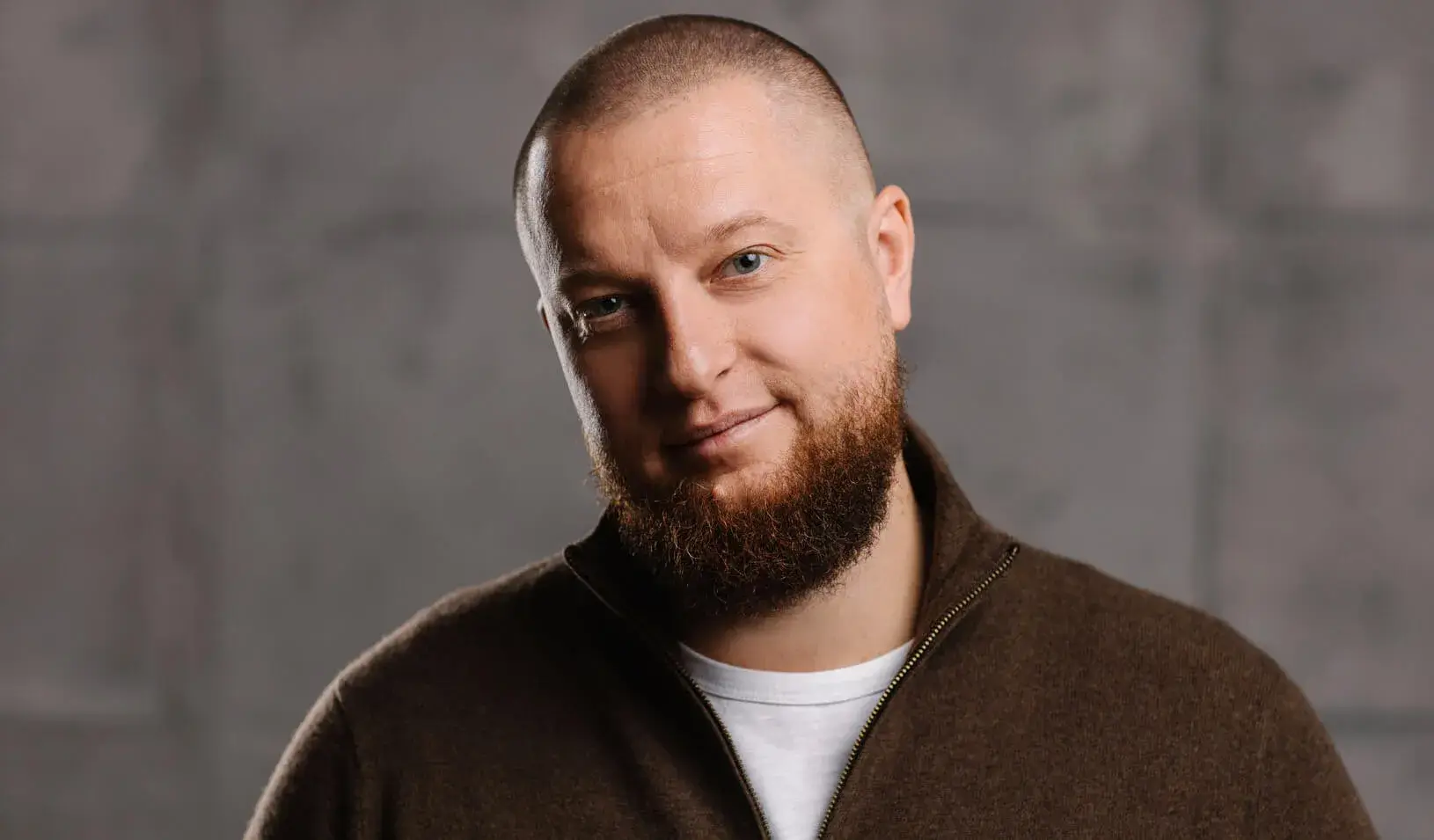Giving Ukrainians Maimed by War a Second Chance at Life
Andrey Stavnitser shifted his focus from running his businesses to establishing a rehab clinic for people who lost limbs in the war. He calls it the Superhumans Center.
March 23, 2023

For Andrey Stavnitser, the war became personal the moment Russia escalated its invasion of Ukraine in February 2022.
Andrey wasn’t home when Russian troops invaded his residence outside of Kyiv, terrorizing his security staff. He felt powerless as he watched the scene unfold remotely on security cameras. The soldiers, who had looted the village, were using his property to stash stolen goods and stage rocket launchers. The CEO of Ukraine’s largest port, Andrey quickly alerted the military intelligence, who then shelled his house. His staff escaped with their lives, but his home was destroyed.
On making this call, Andrey recalls, “I didn’t think about it for one second. The Ukrainians are so brave and fighting so hard. I could only do one thing, and I did it.”
Andrey grew up the son of port owner Aleksey Stavnitser, a self-made businessman who started out as a manual laborer. Aleksey founded TIS Group, a large terminal operator north of Odessa, building it from the ground up. Andrey learned the business by observing his father. “He was a responsible, charismatic leader, and people respected him,” Andrey says. “I was blessed to be his son, to sit next to him and learn.” At age 26, Andrey became CEO, carrying on his father’s legacy after he passed away from cancer.
Over his 20+ years in port operations, Andrey has strived to “open Ukraine to the world,” launching and managing several businesses. In addition to running TIS Group, he is now co-founder/owner of P&O Maritime Ukraine, co-founder/partner of private equity management firm SD Capital, leads a joint venture with global food corporation Cargill, and is a client of the European Bank for Reconstruction and Development (EBRD) and the International Finance Corporation (IFC).
In September 2021, Andrey completed the Stanford Executive Program, learning alongside other business leaders. “I wanted to become a global leader to improve local standards, through not only the services we provide and the products we produce, but through corporate governance, our business approach, and zero tolerance for corruption. Having brought three global players to the Ukrainian market, I have seen the positive impact of high corporate standards from the inside, and wanted to implement them in Ukraine.” He enjoyed working through case studies with other participants, creating lifelong connections.
As the war began in Ukraine just a few days later, Andrey shifted his focus from running his businesses to leading humanitarian efforts. He launched the Help Ukraine Center with other business leaders, establishing logistical hubs to receive international donations of food, clothing, and medical supplies. “We deliver them to the hotspots in Ukraine, almost to the combat zones,” he says, adding, “Why are we doing this? Because the only way to overcome the pain we all feel is to work [your very hardest].”
Launching the Superhumans Center
As the war raged on, Andrey saw another humanitarian crisis emerging: Thousands of soldiers and civilians, including children, were being maimed and losing limbs. “We need to make sure that they’re being taken care of,” Andrey says. “And we realized that there is no expertise in the country with prosthetics and reconstruction surgery.”
Andrey enlisted a core team of partners, and together, they approached Ukrainian First Lady Olena Zelenska to be on their supervisory board. “We told her we wanted to build a center of excellence … a hospital to provide state-of-the-art prosthetics in Ukraine,” Andrey says. Madame Zelenska got on board, as did a number of high-profile investors and celebrities. Andrey and team visited Walter Reed Army Medical Center in Washington, DC, and facilities in the UK and Germany, consulting with world-renowned bionics experts.
Because, Andrey says, “In Ukrainian language, there are no positive words [to describe] a person with disabilities,” he dubbed his initiative Superhumans. “We are saying you should not be ashamed of your prosthetics. You should be proud of it. You are stronger and faster than a normal human. You are more beautiful. You are superhuman. As we pursue this, we are changing the perception and the psychology behind it.”
Housed at a veterans’ hospital in Lviv in Western Ukraine, the Superhumans Center opens its prosthetics lab in April 2023, with reconstructive surgery and PTSD treatment to follow. Andrey is appealing to world-renowned physicians to train Ukrainian doctors to perform reconstructive surgeries and provide rehabilitation services for amputees. “We want to thank the U.S. for all their support,” he says. “We feel it in our hearts. Now, we’re asking doctors for their help.”
Andrey gets his grit and determination from his father. He knows he has more work to do to achieve his dream for Superhumans. He is drawing on what he learned at Stanford about being a global leader … one who is able to inspire others to achieve great things.
“If you find the right project, very soon you’re no longer an initiator or a co-founder,” Andrey reflects. “You just become one wheel of the project, and the project is driving you. And it’s a really cool feeling, because you become a part of something much more important than just yourself.”


